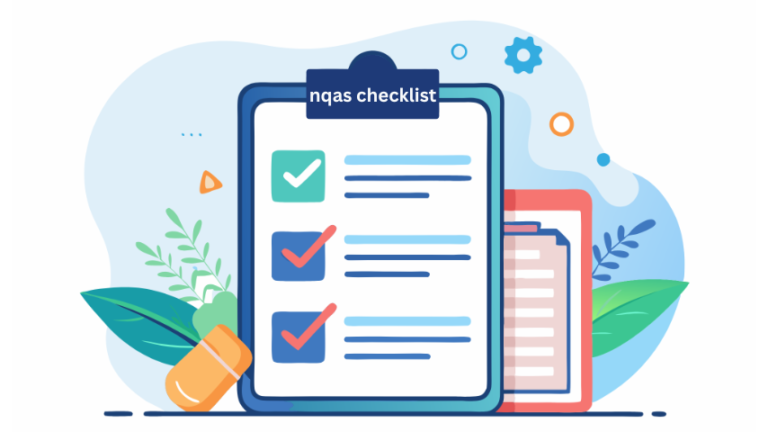
The healthcare sector constantly strives to maintain and improve the quality of services provided to patients. One significant framework that helps achieve this goal is the National Quality Assurance Standards (NQAs) in hospitals. This comprehensive guide will explore what NQAs are, their importance, implementation process, and impact on healthcare delivery.
Understanding National Quality Assurance Standards (NQAs)
National Quality Assurance Standards represent a systematic approach to ensure healthcare facilities maintain consistent quality in their services. These standards serve as benchmarks for hospitals to evaluate and improve their performance across various departments and functions.
Core Components of NQAs
Patient Care Quality
- Clinical outcomes
- Patient safety measures
- Healthcare service delivery
- Emergency response protocols
Administrative Excellence
- Resource management
- Staff training and development
- Documentation and record-keeping
- Policy implementation
Infrastructure Management
- Facility maintenance
- Equipment upkeep
- Safety protocols
- Environmental considerations
Benefits of Implementing NQAs in Hospitals
For Patients
- Enhanced quality of care
- Improved safety measures
- Better health outcomes
- Standardized treatment protocols
- Increased satisfaction levels
For Healthcare Providers
- Clear operational guidelines
- Reduced medical errors
- Improved staff efficiency
- Better resource utilization
- Enhanced reputation
Key Areas Covered in the NQAS Checklist
The NQAS checklist serves as a comprehensive tool for hospitals to assess their compliance with quality standards. Here are the main areas covered:
1. Service Provision
- Outpatient services
- Emergency care
- Inpatient care
- Diagnostic services
- Specialized treatments
2. Patient Rights
- Information disclosure
- Consent procedures
- Privacy protection
- Grievance redressal
- Cultural sensitivity
3. Input Standards
- Infrastructure requirements
- Equipment specifications
- Human resource requirements
- Medicine and supply management
- Support services
4. Clinical Protocols
- Treatment guidelines
- Infection control
- Medication management
- Medical records maintenance
- Quality indicators monitoring
Maintaining NQAS Compliance
To maintain compliance with NQAs, hospitals must:
- Conduct regular internal audits
- Update protocols as needed
- Maintain comprehensive documentation
- Provide ongoing staff training
- Monitor quality indicators
- Address non-conformities promptly
- Engage in continuous improvement
Challenges and Solutions
Common Challenges
- Resource constraints
- Resistance to change
- Documentation burden
- Training requirements
- Maintaining consistency
Effective Solutions
- Phased implementation approach
- Regular staff engagement
- Automated documentation systems
- Continuous training programs
- Quality improvement teams
Impact Assessment
Measuring Success
- Patient satisfaction scores
- Clinical outcome improvements
- Reduced adverse events
- Staff efficiency metrics
- Resource utilization rates
Long-term Benefits
- Enhanced reputation
- Improved patient trust
- Better financial performance
- Reduced legal risks
- Higher staff satisfaction
Q1: What is the primary purpose of NQAs in hospitals?
NQAs aim to establish and maintain quality standards in healthcare delivery, ensuring consistent and high-quality patient care across all hospital departments.
Q2: How often should hospitals review their NQAS checklist?
Hospitals should conduct quarterly internal reviews and annual comprehensive assessments of their NQAS compliance.
Q3: How do NQAs benefit hospital staff?
NQAs provide clear guidelines, standardized procedures, and improved work processes, leading to enhanced job satisfaction and professional development.
Q4: What role does documentation play in NQAs?
Documentation is crucial for tracking compliance, identifying areas for improvement, and maintaining accountability in quality assurance.
Best Practices for NQA Implementation
Leadership Commitment
- Active involvement
- Resource allocation
- Clear communication
- Regular monitoring
Staff Engagement
- Regular training
- Feedback mechanisms
- Recognition programs
- Team collaboration
Quality Monitoring
- Regular audits
- Data analysis
- Performance tracking
- Improvement planning
Conclusion
National Quality Assurance Standards (NQAs) serve as an invaluable framework for hospitals striving for excellence in patient care. These standards address all facets of healthcare delivery, ensuring that patients receive quality care across diverse hospital environments. The NQAs checklist is a vital tool for hospital administrators and staff, guiding self-assessment, promoting accountability, and encouraging continuous quality improvement.
In an industry where consistency and reliability are paramount, NQAs provide the structure hospitals need to maintain high standards, protect patient safety, and foster trust in healthcare systems. By implementing NQAs effectively, hospitals can not only meet regulatory requirements but also exceed patient expectations, creating an environment where healthcare professionals and patients alike can thrive.